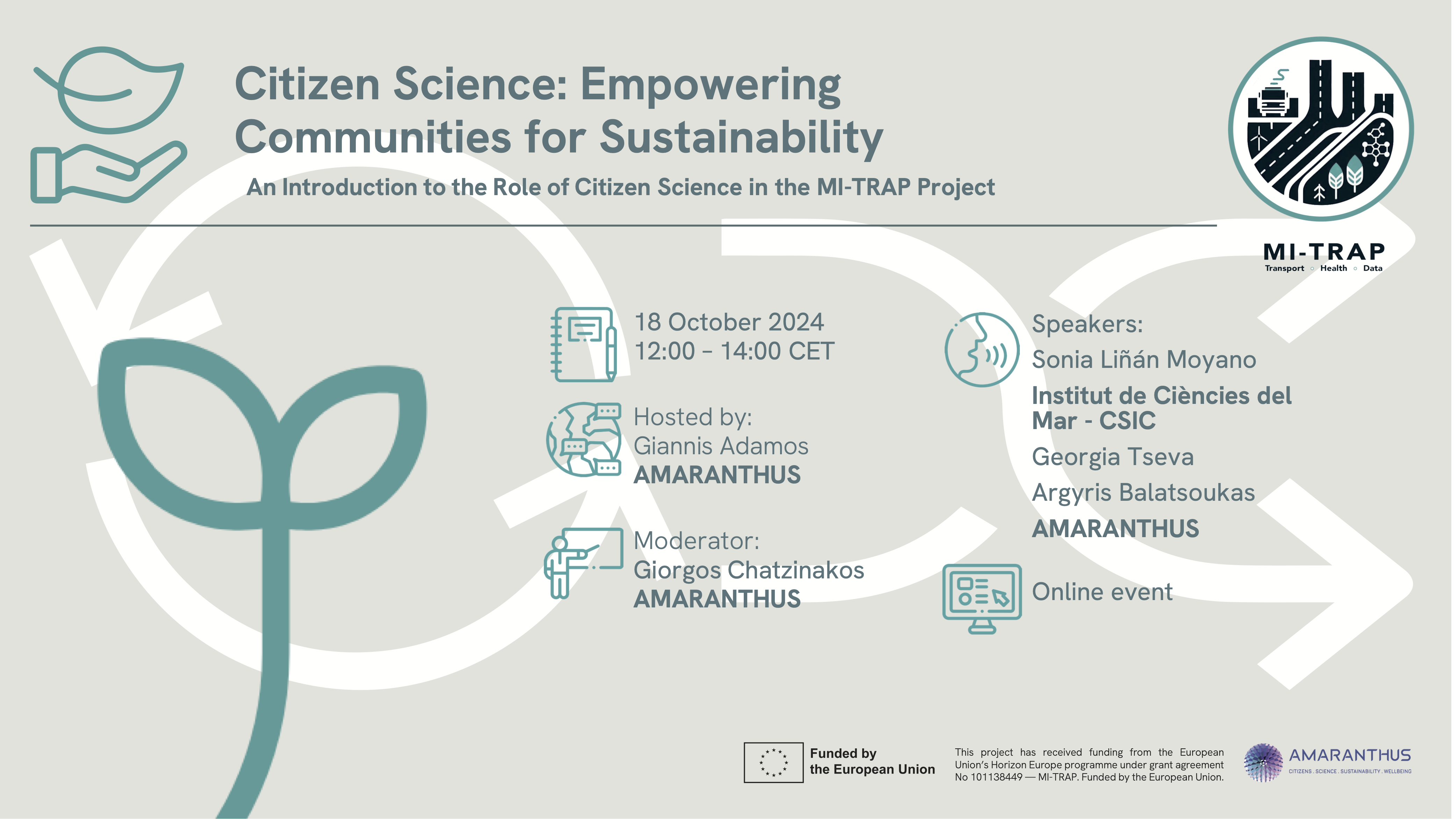21 Oct Online Workshop | The Role of Citizen Science in Shaping Sustainable Cities
Last week, MI-TRAP partners gathered for an online event hosted by AMARANTHUS on 18 October 2024. Titled Building Sustainable Cities Together: An Introduction to the Role of Citizen Science in the MI-TRAP Project, the event focused on how Citizen Science can reshape environmental research and urban sustainability efforts.
The session, hosted by Prof, Giannis Adamos (AMARANTHUS, Aristotle University of Thessaloniki) brought together expert speakers and partners to explore the role of Citizen Science in the MI-TRAP project, which aims to reduce air pollution and create healthier urban environments.

Sonia Liñán Moyano from the Institut de Ciències del Mar – CSIC kicked off the event with an inspirinf introduction to the concept of Citizen Science. She emphasized its foundational principles and how it is relevant in today’s world. “Citizen Science is about the voluntary participation of non-professional scientists in research, allowing them to contribute at different stages of a project” she explained. Sonia underscored that citizens should be viewed as active participants who can experiment, research, and guide hypotheses. This approach enhances community engagement and fosters a collaborative environment for generating new knowledge.
Following Sonia’s presentation, Argyris Balatsoukas,shared insights from successful Citizen Science projects across Europe. He illustrated how these projects have made a tangible impact on environmental monitoring, community engagement, and even policy development. The workshop highlighted the shift from traditional contributive projects, where citizens primarily gather data, to more collaborative and co-created projects that involve them in various stages, from hypothesis development to data interpretation.
Finally, Georgia Tseva of AMRN discussed the specific role Citizen Science plays within the MI-TRAP project. She provided an overview of ongoing project activities, highlighted upcoming milestones, and outlined the roles and expectations for partners. Georgia’s insights emphasized the importance of collaboration and active participation in advancing the project’s objectives.
The event concluded with an interactive session led by Giorgos Chatzinakos, where participants engaged in a Q&A and group discussions. The feedback and contributions from partners underscored the workshop’s goal of aligning MI-TRAP’s objectives with effective Citizen Science methodologies.





